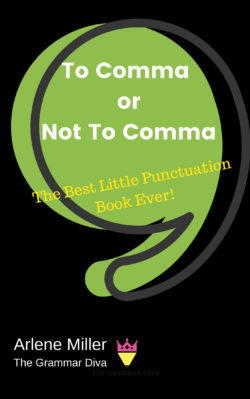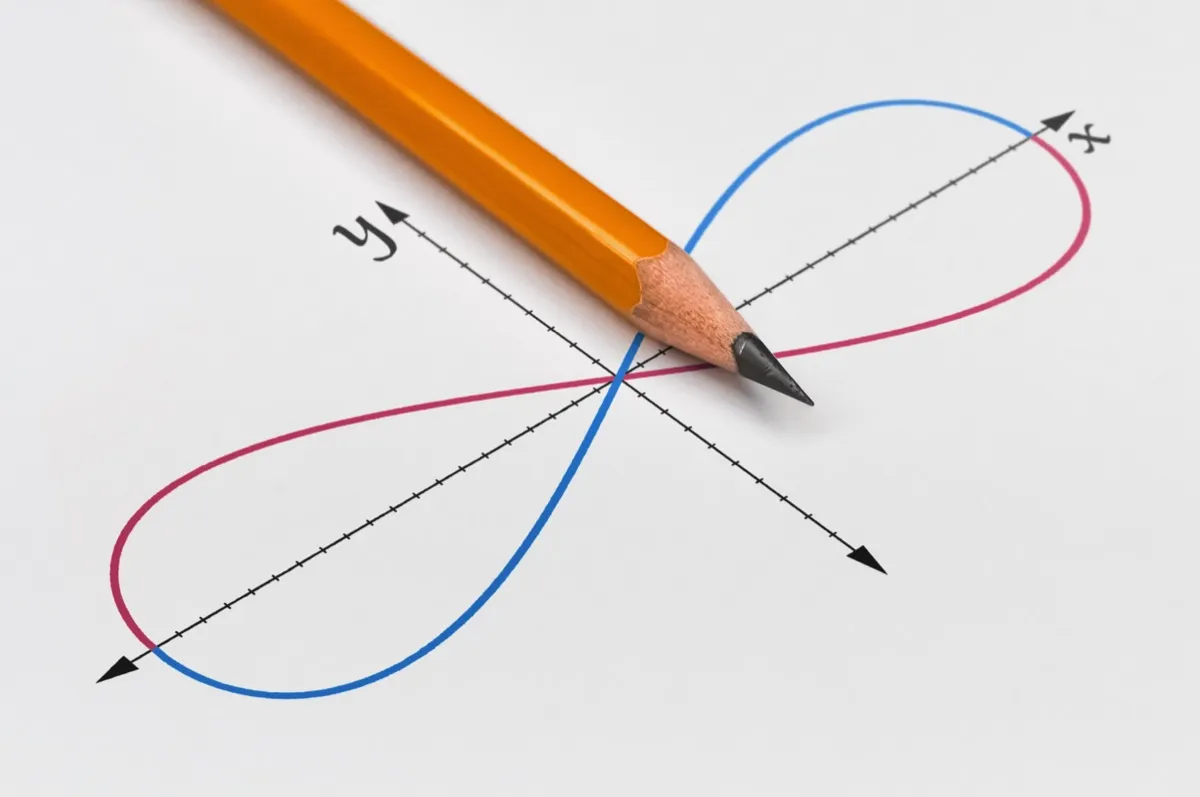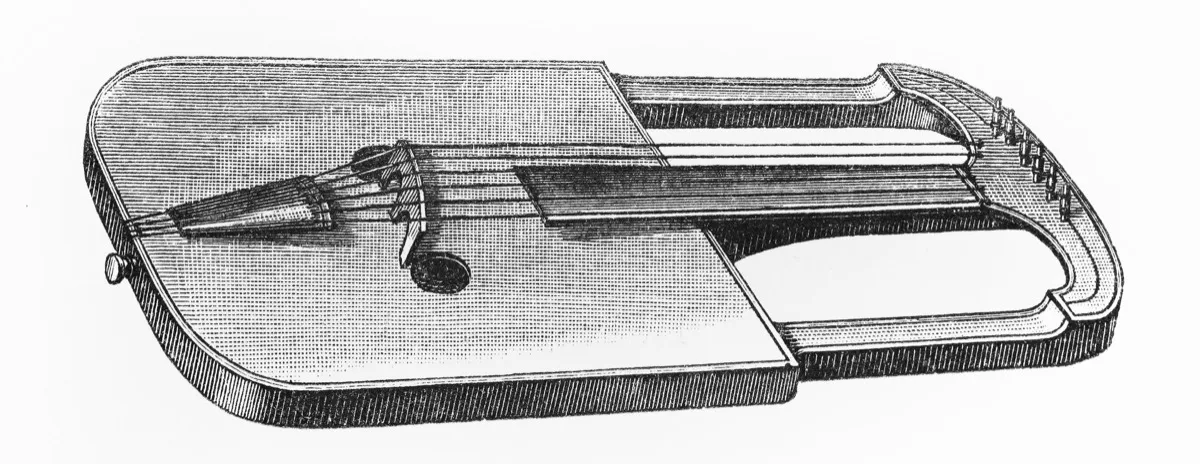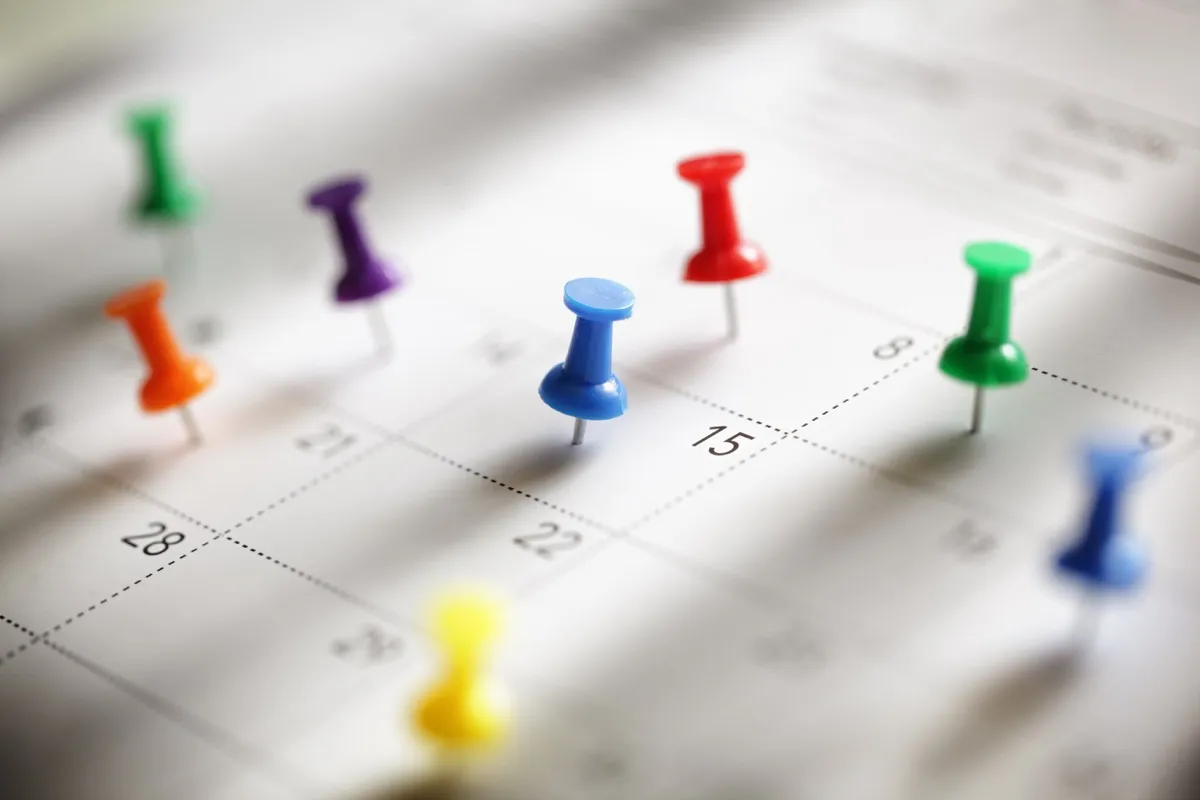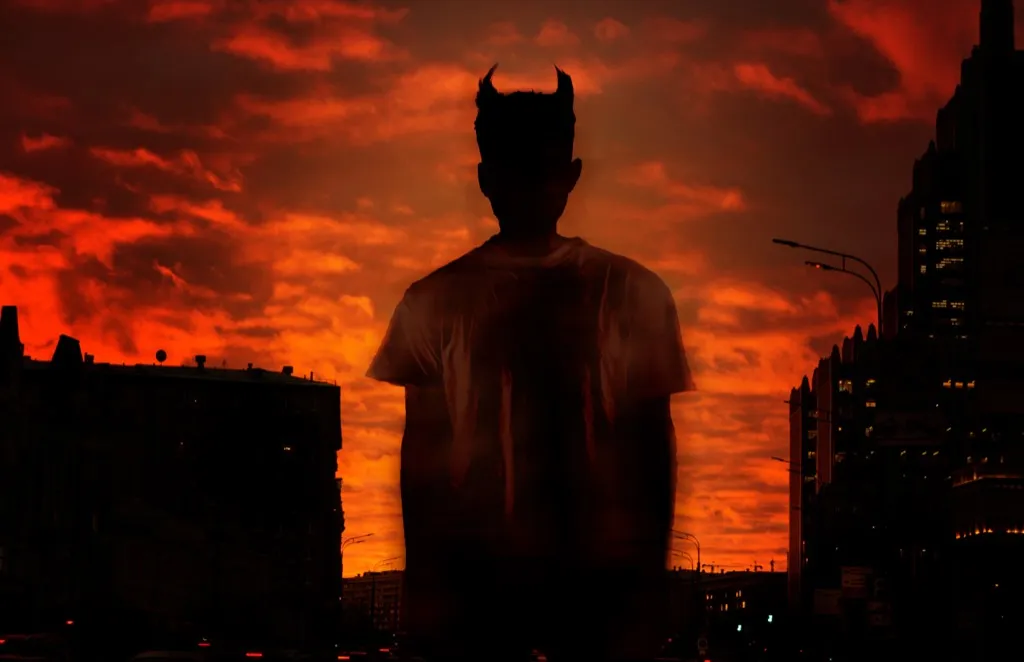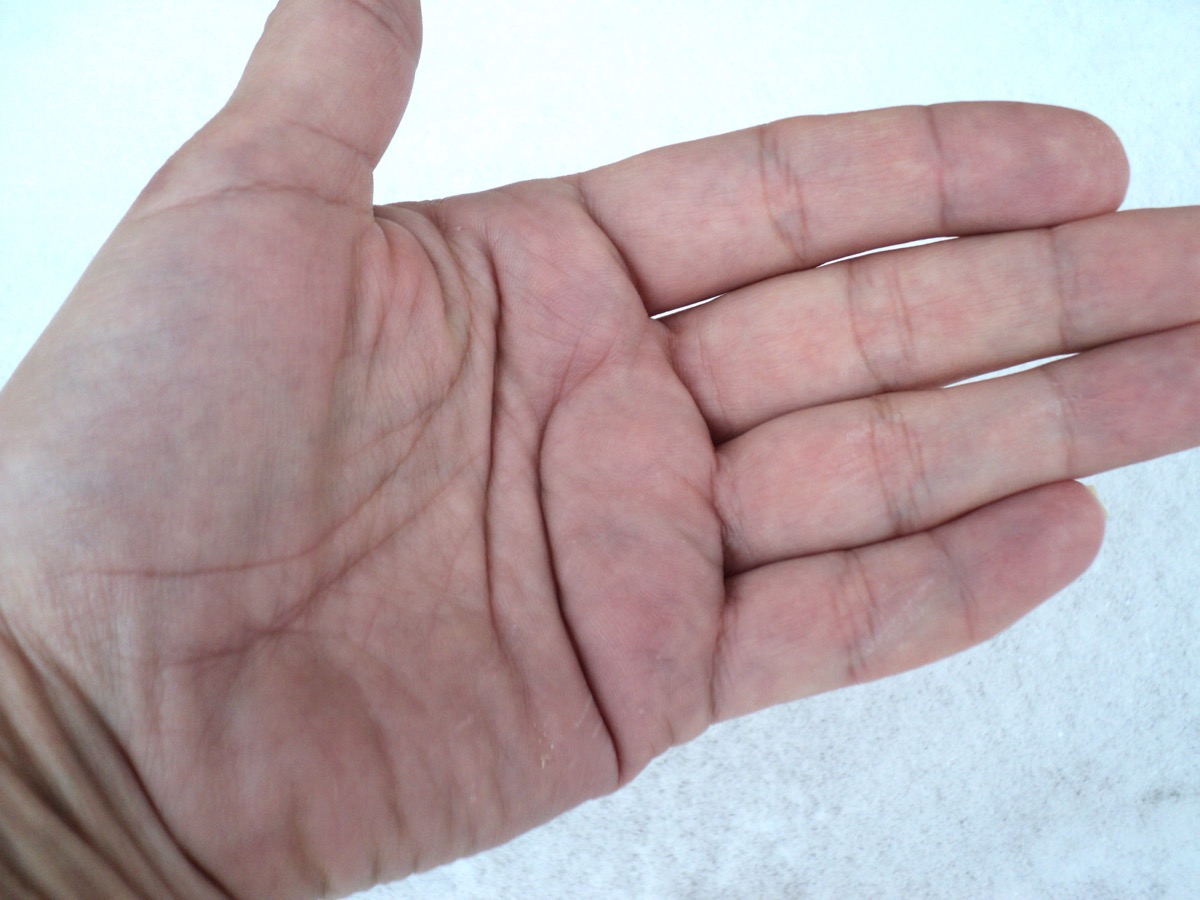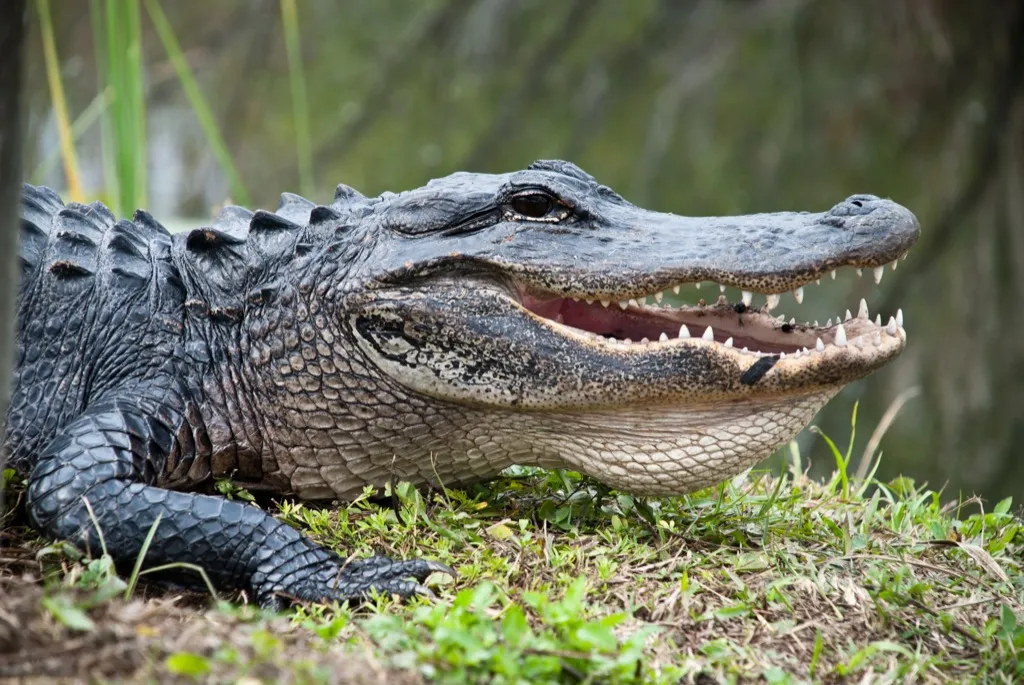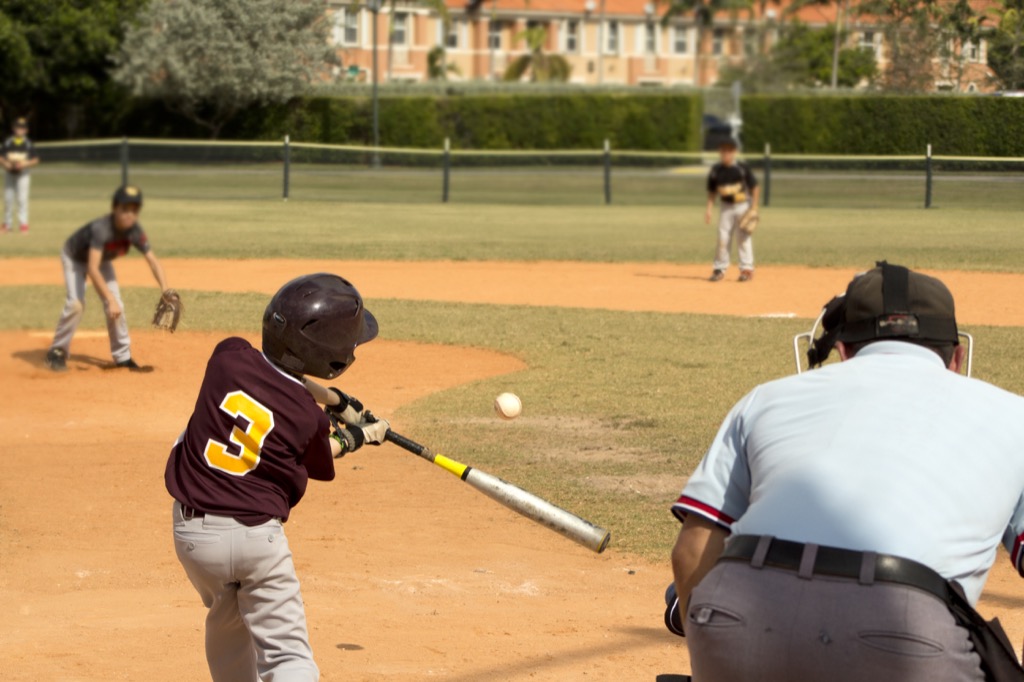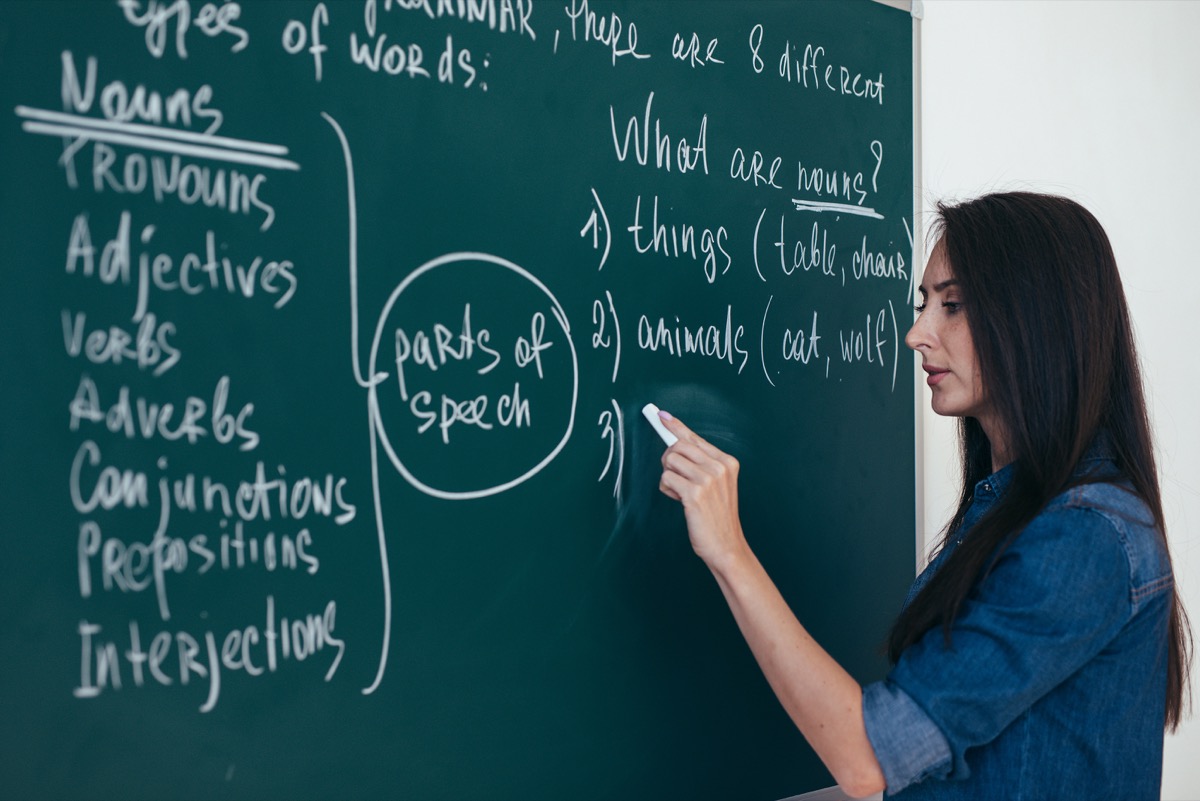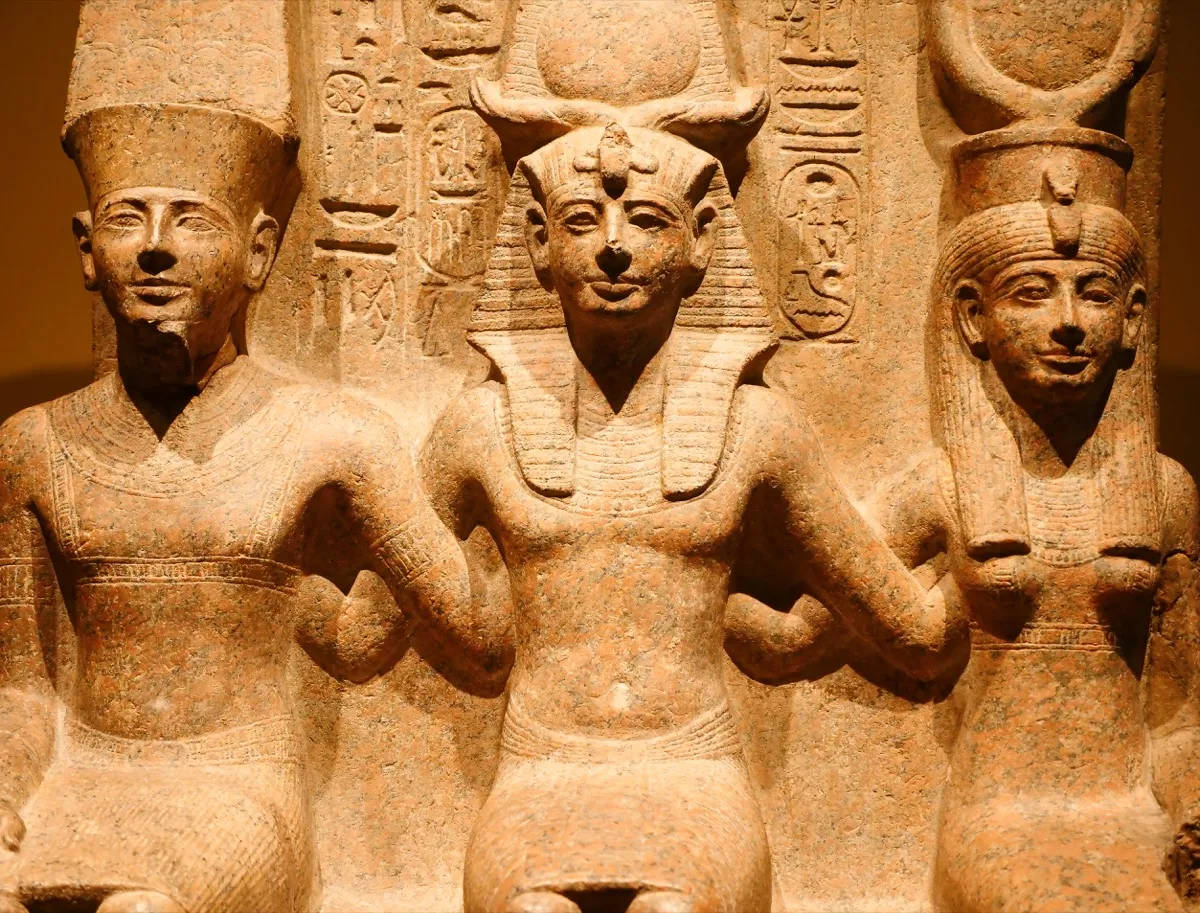
A few weeks ago I wrote the post A Dozen Fun Facts About Words and the Language. A few months ago I wrote a post called 20 Interesting Facts About the History of Our Language. Continuing in the series of language trivia, here are 25 more fun facts about words and the language:
- The most common letter in the English language is e. No surprise there. But did you know that one in eight of all letters written is e?
- The most common consonant in English is r, followed by t.
- The most common first letter of a word is s.
- Maine is the only state whose name consists of only one syllable.
- The longest word in the English language that has its letters in alphabetical order is almost.
- Bookkeeper and bookkeeping are the only two words with three consecutive double letters.
- The longest word that doesn’t repeat any of its letters is uncopyrightable.
- The word like is actually called a “crutch,” along with basically and actually.
- Crwth, a musical instrument once played in Europe, is the longest word without a vowel.
- Strengths is the longest word with only one vowel.
- On average, for every letter q written in the English language, there will be 56 e‘s.
- The compulsive desire to look at something that horrifies you, such as a horror movie or an injury, is called cacospectomania.
- To jakes is to walk mud into a house.
- An autohagiography is an autobiography that makes the subject appear better than they actually are.
- Use of the word selfie increased by 17,000% between 2012 and 2013.
- An aquabib is someone who chooses to drink water rather than alcohol.
- Callomaniacs are people who think they are more beautiful than they really are. (Are shallowmaniacs the only ones who care?)
- We know that a soliloquy is a solo speech. The proper name for speaking through clenched teeth is dentiloquy.
- The head of an asparagus is called the squib.
- GIF stands for “graphics interchange format,” and, according to its inventor, should be pronounced “jiff” and not “giff.”
- Referring back to #9, apparently some people don’t consider y a vowel and say that rhythm is the longest word without a vowel. However, I say y is obviously a vowel in rhythm.
- Skiing is the only word with a double i. Unless you also count Hawaii!
- Queueing is the only word with five vowels in a row.
- At the beginning of a game of Scrabble, you have roughly a 1 in 20,000 chance of picking the word senator out of the bag. I would think the same is true of Words with Friends. Anyone know?
- Apparently (and I have seen differing opinions on this), some think the longest word in the English language has 189,819 letters. It is the full chemical name of titin, a protein that controls the movement of muscles. I would spell it out here, but I don’t have room 🙂
Grammar Diva News and Such:
Looking for guest posters with something to say: If you have something to say that relates to the types of subjects on this blog, send me your ideas.
Check out my books! (only if you want to)
I had great fun speaking to the Small Business Development Center’s Boot Camp for young entrepreneurs aged 14 to 27. This past week I spoke to a group in Marin: 30 great high school kids, some of whom are already running their own businesses. I talk to them about the importance of writing and speaking competently. If you need a speaker or know someone who does, I love to talk about grammar, words, writing, language….so please contact me.
A huge thank you to Audrey Kalman for writing last week’s fabulous guest post!
My new book (cover and subtitle temporary) is now available for preorder on Kindle, iBooks, Kobo, and soon all e-book readers. Estimated release date is August 15 (or so).
Words are the building blocks of communication—but still, there’s a lot you probably don’t know about them. Even some of the most common words have surprising histories or hidden meanings. And at the same time, the English language is loaded with words that perfectly describe everyday things, but chances are that you don’t use them because you never even knew they existed. That is, of course, until now. Here are 40 wild word facts that will add flavor to your future conversations—and maybe even help lead your team to victory at your next trivia night.
The term refers to a plane curve in which two loops meet at a central point, creating what we might call a sideways figure-eight. As Merriam-Webster explains, it’s derived from the Latin word for «with hanging ribbons.»
That would be the chemical name of Titin, the largest known protein. It begins, «Methionylthreonylthreonylglutaminylalanylprolylthreonylphenylalanylthreonylglutaminylprolylleucylglutaminylserylvalylvalylvalylleucylglutamylglycylserylthreonylalanylthreonylphenylalanylglutamylalanylhistidylisoleucylserylglycylphenylalanylprolylvalylprolylglutamylvalylseryltryptophylphenylalanylarginylaspartylglycylglutaminylvalylisoleucylserylthreonylserylthreonylleucylpro» and goes on for tens of thousands of letters. (You can read the whole thing yourself here and hear it pronounced here.)
The word, pneumonoultramicroscopicsilicovolcanoconiosis, technically refers to a type of lung disease caused by silica dust. But according to Lexico, it was actually coined in the 1930s by Everett M. Smith, the president of the National Puzzlers League, for the express purpose of becoming the longest word in the English language, so it’s a bit of a cheat.
According to the Online Etymology Dictionary, the word «bankrupt» grew out of an Italian phrase that literally refers to breaking something—not just the bank. That Italian phrase is banca rotta, meaning «broken bench,» and it refers to an old custom that involved literally breaking the bench of money dealers who ran out of funds.
Pancakes, corn flakes, coffee, orange juice—they are all «jentacular,» or «pertaining to breakfast.» Impress your friends next time you’re at brunch by declaring, «These scrambled eggs are such a great jentacular dish!»
In the late 19th century, pharmaceutical company Bayer released a revolutionary over-the-counter drug that could allegedly help everything from sore throats to tuberculosis. That drug was heroin. Its name comes from the German word heroisch for «powerful»—which is appropriate, given how powerful the addictive substance is. For a while, Bayer owned trademark rights to heroin, but they lost those rights in the Treaty of Versailles in 1919, according to the BBC.
Of course, the plural «confetti» is the more commonly used word, but you can use the singular «confetto» to refer to each individual piece of colored paper.
Think that’s cool? Here are some other awesome ones:
Western Union = No Wire Unsent
Clint Eastwood = Old West Action
Astronomers = Moon starers
Where does the name «walrus» come from? Well, on Oxford University Press’s blog, Podictionary host Charles Hodgson notes that it is derived from the Old English word horschwael, which literally translates to «horse whale.» Hodgson theorizes that this word was eventually flipped to create waelhorsch, and later, the similar-sounding «walrus.»
According to Merriam-Webster, the name of this flightless bird comes from the Welsh words for «head» (pen) and «white» (gwyn). It originally referred to the now-extinct great auk bird, but was eventually applied to these adorable Arctic-dwelling creatures—even though their heads are usually black and their bellies white.
It would seem that these two words would share some kind of common ancestor, but in fact, they grow from two completely different roots. While «adult» comes from the Latin verb adolescere, or «to grow up,» the word «adultery» grows from the Latin verb adulterare, which means «to commit adultery» or «to corrupt.»
Believe it or not, there are two five-letter words in the English language that contain zero vowels: «crwth» and «cwtch.» According to the Collins English Dictionary, both of these words are Welsh, and this language treats the letter «w» like a vowel.
When it’s Thursday and you’re trying to remind someone of something that happened on Tuesday, you usually go with the clunky phrase «the day before yesterday.» But guess what? There’s a one-word way of saying that: «nudiustertian.» Of course, given the time it will take you to explain to your friends what the word means, it might be easier just to say «the day before yesterday.»
According to the Online Etymology Dictionary, the word «ambulance» is rooted in the Latin word ambulare, meaning «to walk.» It might seem counterintuitive—don’t you need an ambulance when you can’t walk to get emergency assistance?—but the word originally referred to the contraptions known as «walking hospitals.»
As MedicineNet explains, in the 19th century, Napoleon came up with the idea of retrieving injured soldiers on a cart and running them out of harm’s way. The mobile unit used to transport soldiers was called a hopital ambulant, or a «walking hospital.»
George Clinton may be the godfather of funk (the music), but the word was around long before. According to Babbel, it originated in 16th century Europe to describe the unpleasant or musty smell of tobacco omnipresent at the time. It likely grew from the Old French word funkier, meaning «to blow smoke on.»
While we usually think of «bogus» as an adjective describing something fake, the word actually began as the name of a type of machine. As Merriam-Webster notes, a «bogus» was a machine that would produce counterfeit coins. Over time, the word came to serve as shorthand for «counterfeit» itself.
We’re all familiar with the concept of déjà vu: the feeling that we’ve experienced something before, even though it’s the first time we’re experiencing it. But what about jamais vu? This is the French term for the exact opposite phenomenon, in which something familiar feels foreign. Translating to «never seen,» it’s a phenomenon that can be caused by medical issues like epilepsy.
When someone or something is a leader and innovator in their respective field, they’re like a sheep leading the pack. At least, that’s what the person who first used the word «bellwether» to describe a leader was trying to say.
Centuries ago, it was commonplace for shepherds to hang bells around the «lead sheep» in their flock, which they referred to as the—you guessed it—»bellwether.» According to Merriam-Webster, the word began being used to describe a trendsetter in the 13th century.
That would be «hydroxyzine,» and it refers to a type of medicine that helps with both sneezing and anxiety.
In his epic poem Paradise Lost, John Milton invented the word «Pandemonium» as the name of the capital of the underworld. Stemming from the Greek words for «all» and «little spirit/demon,» the term roughly translates to something like «place for all demons.» When we use the word today, it usually refers to a kind of chaos, but Milton invented the word to describe a truly unpleasant-sounding place.
The word «algorithm» actually dates back to the 9th century. According to NASA, it’s derived from the latinization of the name of Persian mathematician Muhammad ibn Musa al-Khwarizmi, one of the founding fathers of algebra. It originally referred to «the system of Arabic numerals,» but over time, the term grew to broadly describe a set of rules to follow in making calculations.
As the Online Etymology Dictionary notes, the word «quarantine» comes from the Italian words quarantina giorni, which literally translate to «space of 40 days.» Why? In the 14th century, that’s how long ships were kept in isolation—or quarantined—when they could potentially be harboring sick passengers.
According to Lexico, they are «uncopyrightable»—something that cannot be copyrighted—and «dermatoglyphics»—the study of skin markings. These two words are tied as the longest English words that don’t repeat a letter.
«Apron» traces back to the Latin word mappa for napkin, becoming «napron» in the 14th century. But over time, through a process called «misdivision» or «rebracketing,» the phrase «a napron» became «an apron,» eliminating the «n» and giving us the spelling we know today.
«Nickname» is another classic case of misdivision. According to the Online Etymology Dictionary, it was originally «ekename,» but in the mid-15th century it somehow became «neke name.» The «eke» comes from the Old English word eaca for «increase»—which makes sense when you consider that a nickname is an additional name.
When you walk out of the house and run into your neighbor, feel free to call them a «qualtagh.» Though that might sound like an insult, it actually just refers to the first person you see after leaving your house. Alternately, it can refer to the first person who enters your home after New Year’s.
A «contronym» is any word with two opposite and seemingly contradictory meanings. Examples of contronyms are «cleave» (which can describe both the act of dividing something and an object adhering to a surface) and «sanction» (which can describe both a punishment for disobeying the law and permission to do something).
According to Guinness World Records, this verb—and sometimes noun—has the most meanings of any English word, with 430 listed in the Second Edition of the Oxford English Dictionary. It also has the longest dictionary entry at 60,000 words!
It’s a question most people have at some point while working out: Why are dumbbells called «dumbbells»? Well, as Hodgson explains on the Oxford University Press blog, the word «dumbbell» comes from the fact that the exercise equipment was originally made by attaching silent metal bells to rope. You see, before the word «dumb» meant «stupid,» it meant «unable to talk.»
Samuel Johnson, celebrated writer and pioneer of the English dictionary, was also famous for his appetite. And part of the reason he grew to be such a big guy may have had to do with how he viewed meals. His definition of «lunch» had nothing to do with the time of day, but the amount of food eaten—specifically, «as much food as one’s hand can hold.»
Not one to use a lot of technical jargon for something that could be described in more simple terms, Johnson called these reptiles «an animal resembling a serpent, with legs added to it.»
Back in the day, the Spanish referred to what we now know as an alligator as el lagarto. Translating to «the lizard,» the phrase got blurred together over time with repetition, eventually becoming one vaguely Spanish-sounding word: alligator.
«Goodbye» has surprisingly religious origins. The Online Etymology Dictionary explains that this common farewell comes from the 16th century English term «godbwye,» which is shorthand for «God be with ye.»
Merriam-Webster added this acronym for «too long; didn’t read» to its dictionary in 2018.
It was added in 2011, along with «FYI» and «OMG.»
We might not think of Jane Austen as a pioneer of sports coverage, but it turns out the celebrated author was one of the first writers to use the word «baseball» in their work. Her novel Northanger Abbey, published in 1817 after her death, includes one of the earliest mentions of the word, written as part of the introduction of heroine Catherine Morland. «It was not very wonderful that Catherine, who had nothing heroic about her, should prefer cricket, base-ball, riding on horseback, and running about the country at the age of fourteen, to books,» the novel reads.
At least that was the case in 1995, when an analysis of entries in the Concise Oxford Dictionary found that 11.1607 percent of the letters in the entries were the letter «E.» The second-most common letter was «A,» accounting for 8.4966 percent of all letters. The letter «Q» accounted for the smallest percentage—just 0.1962 percent of all letters.
German miners who encountered cobalt were not fans of the metallic element. As science editor Susan Watt writes in Cobalt, they used to encounter it while trying to extract silver, and they «would say that naughty spirits or goblins were the cause» of problems and poisonous fumes. As such, when the metal was discovered in 1739 by Georg Brandt, it was named «kobold,» which is the German word for «goblin.»
A chemistry word with mythological roots is the gas «ammonia,» which refers to the Egyptian god Amun, or «Ammon» in Greek. Merriam-Webster explains that it was near his temple at the Siwa oasis that the colorless compound was originally found in the late 18th century.
It’s called an «aglet,» and comes from the French word for «needle» (aguillette).
Additional reporting by Morgan Greenwald
Fun facts about words and the English language
The stuff of literature is, of course, words. As Samuel Taylor Coleridge observed, ‘Prose = words in their best order; – poetry = the best words in the best order.’ In this post, we’ve gathered up 27 of the best facts about words that we’ve unearthed since beginning this blog a couple of years ago. Where necessary, we’ve provided a link to further information.
If you enjoy these weird and wonderful word facts, you might also like our 10 rare but useful words everyone should know.
The word ‘onomatomania’ means ‘intense mental anguish at the inability to recall some word or to name a thing’.
A ‘dysphemism’ is an unpleasant or derogatory word or expression substituted for a pleasant or inoffensive one; the opposite of a euphemism.
Though of uncertain origin, the word ‘bad’ may stem from the Old English ‘bæddel’ meaning ‘hermaphrodite’ or ‘effeminate or homosexual man’.
The first recorded use of ‘bad’ to mean ‘good’ is from an 1897 book, Pink Marsh, by American writer George Ade.

‘Pristine’ originally meant primitive.
To ‘scan’ originally meant to study closely.
To ‘peruse’ originally meant to use up or exhaust.
‘Epizeuxis’ is the repetition of a word or phrase in immediate succession, e.g. the line from King Lear: ‘Never, never, never, never, never.’
A sentence containing a single word is a ‘monepic’ sentence.
Hippopotomonstrosesquippedaliophobia is the fear of long words. (We have more facts about long words in literature here.)
‘Word-grubber’ was 18th-century slang for someone who used unnecessarily long and complicated words in conversation.
‘Hellenomania’ refers to the act of using long Latin and Greek terms instead of readily understandable English words.
Samuel Johnson left the letter X out of his dictionary, claiming that X ‘begins no word in the English language’.
‘Aardvark’ isn’t the first word in the dictionary – the Oxford English Dictionary lists several words before it including a, aa (a stream), aal (a mulberry), aam (an old unit of liquid measure), aandblom (a wild flower), and aapa (a term, originating in South Asia, for an older sister).
Ezra Pound coined the word ‘logopœia’, which he defined as ‘the dance of the intellect among words’.
A ‘logodaedalus’ is someone who is cunning with words; it was first used by Ben Jonson in 1611.

‘Logamnesia’ means the act of forgetting a word.
‘Loganamnosis’ refers to the mania for trying to recall a forgotten word.
‘Logomisia’ denotes a disgust for certain words.
‘Logodaedaly’ refers to the arbitrary coining of new words.
C. S. Lewis coined the word ‘verbicide’ to denote the killing of a word or the distortion of its original meaning.
Richard Lederer coined the word ‘verbivore’ to describe someone who devours and feasts on words.
‘Verbigeration’ is the habit of frequently repeating favourite words or expressions.
The word ‘epeolatry’ means ‘the worship of words’; it first appears in an 1860 book by Oliver Wendell Holmes Senior.
Logan Pearsall Smith coined the word ‘milver’ for ‘a person with whom one shares a strong interest in a particular topic; esp. wordplay’.
More interesting word facts can be found in our interesting lexicon series, which examines the curious origins of well-known words.
Image (bottom): Multi-volume Latin dictionary (photo by Dr Marcus Gossler, 2005), Wikimedia Commons.
Word etymology is fun and interesting. There is always wonder in tracing back where words come from. Sometimes, some very common words have really weird origins. Like this list we put together a while back. The Book of Everyone did something similarly fun. They came with word facts that we think will blow your mind, especially if you are a word nerd like us. So, here is 25 word facts for you to digest and we hope they appeal to you. Please let us know what you think in a comment.
1.
2.
3.
4.
5.
6.
7.
8.
9.
10.
11.
12.
13.
14.
15.
16.
17.
18.
19.
20.
21.
22.
23.
24.
You’ve reached the end of the article. Please share it if you think it’s interesting.
The shortest, oldest, and most commonly used word is “I.”
1. One single piece of confetti is called a “confetto.”
2. “Schoolmaster” is an anagram of “the classroom.”
our other favorites
Listen = Silent.
Astronomer = Moon starer.
The eyes = They see.
A gentleman = Elegant man.
Funeral = Real fun.
3. There’s a word to refer to the day before yesterday.
When it’s Thursday and you’re trying to remind someone of something that happened on Tuesday, you usually go with the clunky phrase “the day before yesterday.” But guess what? There’s a one-word way of saying that: “nudiustertian.” Of course, given the time it will take you to explain to your friends what the word means, it might be easier just to say “the day before yesterday.”
4. “Quarantine” literally means “40 days.”
As the Online Etymology Dictionary notes, the word “quarantine” comes from the Italian words quarantina giorni, which literally translate to “space of 40 days.” Why? In the 14th century, that’s how long ships were kept in isolation – or quarantined – when they could potentially be harboring sick passengers.
5. The English word with the most meanings is “set.”
According to Guinness World Records, this verb – and sometimes noun – has the most meanings of any English word, with 430 listed in the Second Edition of the Oxford English Dictionary. It also has the longest dictionary entry at 60,000 words!
6. The word “dumbbell” has nothing to do with intelligence but with silence.
It’s a question most people have at some point while working out: Why are dumbbells called “dumbbells”? Well, as Hodgson explains on the Oxford University Press blog, the word “dumbbell” comes from the fact that the exercise equipment was originally made by attaching silent metal bells to rope. Back in the day, the word dumb meant “unable to talk.”
7. “Goodbye” has surprisingly religious origins.
“Goodbye” is derived from the phrase “God be with ye.”
The Online Etymology Dictionary explains that this common farewell comes from the 16th century English term “godbwye,” which is shorthand for “God be with ye.”
8. “Tl;dr” is an official word in the dictionary.
Merriam-Webster added this acronym for “too long; didn’t read” to its dictionary in 2018. LOL was added in 2011, along with “FYI” and “OMG.”
9. The end tip of a shoelace has a name.
It’s called an “aglet,” and comes from the French word for “needle” (aguillette).
10. “I Am” is the shortest possible complete sentence in the english language.
11. Supercalifragilisticexpialidocious is not the longest word in English!
This extra long word (that approximately means “fantastic”) was popularized by the movie Mary Poppins and was eventually added to the dictionary. What you probably didn’t know is that there is a word that is longer—yes longer—than this one. Pneumonoultramicroscopicsilicovolcanoconiosis is a type of lung disease caused by inhaling ash and dust. Go ahead and try pronouncing that!
12. The shortest, oldest, and most commonly used word is “I.”
Humans love to talk about themselves!
13. A new word is added to the dictionary every two hours.
Between now and your next meal, a new word will be put into the dictionary. During the course of the year, almost 4,000 new words are added!
14. Swims will be swims even when turned upside down.
15. All flying is done in english!
This means that all pilots have to identify themselves and speak in English while flying, regardless of their origin.
Cool!
The origin and meaning and other interesting fast facts about words.
You would have to count to one thousand to use the letter “A” in the English language to spell a whole number.
The word “set” has more definitions than any other word in the English language.
“Almost” is the longest word in the English language with all the letters in alphabetical order.
“Rhythms” is the longest English word without a vowel.
“Stewardesses” is the longest English word that can be typed on a keyboard with only the left hand.
The seven-letter word “therein” contains 10 words without rearranging any of its letters: the, there, he, in, rein, her, here, here, ere, therein, herein.
There are only four words in the English language which end in “-dous”: tremendous, horrendous, stupendous, and hazardous.
The second longest word in the English language is “antidisestablishmenterianism.”
The longest word in the English language is “pneumonoultramicroscopicsilicovolcanoconioses.”
No word in the English language rhymes with “month.”
No word in the English language dictionary rhymes with “orange.”
No word in the English language dictionary rhymes with “silver.”
No word in the English language dictionary rhymes with “purple.”
There are 6 words in the English language with the letter combination “uu”: Muumuu, vacuum, continuum, duumvirate and duumvir, residuum.
“Bookkeeper” and “bookkeeping” are the only words in the English language with three consecutive double letters.
The word “queueing” is the only English word with five consecutive vowels.
The two longest one-syllable words in the English language are “screeched” and “strengths.”
The word TIP is an acronym for “To Insure Prompt Service” and originated in a coffee shop.
The oldest word in the English language is “town.”
The English word with only one vowel that occurs six times is “indivisibility.”
Facetious and abstemious contain all the vowels in the correct order.
“Strengths” is the longest word in the English language with just one vowel.
One of the longest English words that can be typed using the top row of a typewriter (allowing multiple uses of letters) is “typewriter.”
If you say you’ll “be back in a jiffy” you better be quick; a “jiffy” is the unit of time for 1/100th of a second.
In Chinese, the words for crisis and opportunity are the same.
Race car is a palindrome.
When two words are combined to form a single word (e.g., motor + hotel = motel, breakfast + lunch = brunch) the new word is called a “portmanteau.”
AM and PM stand for “Ante-Meridian” and “Post-Meridian.”
A.D. stands for “Anno Domini” – the Medieval Latin for “In the year of the Lord.” B.C. stands for “Before Christ.”
The “D” in D-day means “Day” or “on the day” as opposed to D+3 (the planned date plus 3 days).
“Quisling” is the only word in the English language to start with “quis.”
The shortest French word with all five vowels is “oiseau” meaning bird.
The word denim comes from ‘de Nimes’, or from Nimes, a place in France.
The word malaria comes from the words mal and aria, which means bad air. This derives from the old days when it was thought that all diseases are caused by bad, or dirty air.
The word “testify” is said to be based on men in the ancient Roman court having to swear (promise to tell the truth) on their testicles.
“Freelance” comes from a knight whose lance was free for hire, i.e. not pledged to one master.
The word “Boondocks” comes from the Tagalog (Filipino) word “Bundok,” which means mountain.
The word “moose” was originally Algonquin.
The word “sneaker” was coined by Henry McKinney, an advertising agent for N.W. Ayer & Son.
“Evian” spelled backwards is naive.
The word “rodent” originates from the Latin word ‘rodere,’ meaning to gnaw.
The word “queue” is the only word in the English language that is still pronounced the same way when the last four letters are removed.
Many more Word Fast Facts
A while back I wrote a post about palindromes which are some really fun words in English. I thought today it would be interesting to look at some fun facts about words and letters in English in general. We speak, hear, and write words all the time, but it isn’t often we give them much thought other to check our spelling or look up a new word in the dictionary. That is not the case today! This post is a chance for us to take a closer look at some English words and the letters used to make those words and to have a little fun in the process.
Typing words
• Using an American style keyboards the words “stewardesses” and “reverberated” are the longest words that can be typed using only the left hand.
• “Lollipop” is the longest word that can be typed using only the right hand.
Consonants and Vowels in words
• “Rhythm” and “syzygy*” are the longest words in English with no vowels (technically the letter ‘y’ is not a vowel even though it acts like one).
• The word “queueing” is the only word with five consecutive vowels. The word with the most consonants in a row is “latchstring”.
• “Subcontinental” is the only word that uses each English vowel only once and in reverse alphabetical order.
• The most common letter in English is “e.”
• The most common consonant in English is “r.”
• More English words begin with the letter “s” than with any other letter.
• If you spell out every number from 0 to 999 (i.e. one, two, three, etc.), you will find every vowel except for ‘a’. You have to count to one thousand to find a single ‘a’!
Syllables and words
• The longest one-syllable words are “screeched” and “strengths”.
• “W” is the only letter in the alphabet that does not have one syllable. It has three syllables!
Words inside words
• The word “therein” contains ten words without rearranging any of the letters: there, in, the, he, her, here, ere, therein, herein, rein.
Fun facts about letters
• A, H, I, M, O, T, U, V, W, X, and Y are the symmetric capital letters.
• The symmetric lowercase letters are i, l, o, t, u, v, w, x.
• “Q” is the only letter that is not used in the name of any of the United States.
• The only words with “uu” are “vacuum”, “muumuu”, “residuum”, and “continuum”.
• The only words with three consecutive double letters are “bookkeeping” and “bookkeeper”.
Words that stand alone
• There aren’t any words in English that rhyme with “orange,” “purple,” “silver,” or “month.”
• “Underground” is the only word that begins and ends with “und”.
• Only two English words in current use end in “-gry”. They are “angry” and “hungry”.
• There are only four English words in common use ending in “-dous”: “hazardous,” “horrendous,” “stupendous,” and “tremendous.”
*syzygy = a straight line configuration of three celestial bodies

